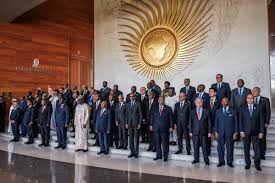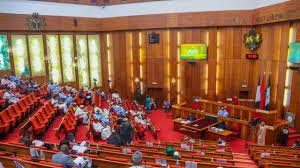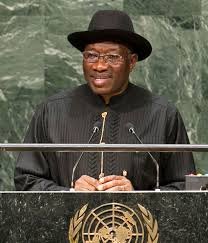Context – The World of Work:
It is important to begin by affirming the centrality of work to humanity. Work is the most significant attribute and defining character of the Human Being, in addition to the ability to think, to reflect, and to communicate. These attributes are the characteristics that set the human being apart from the rest of nature, and that have shaped the evolution of human civilisation.
Work is the conscious activity, of a physical and mental nature [that is involving the use of our limbs and of our brain, the unity of limbs and the nervous system], undertaken by the human being in order to meet his or her needs, to eat, to protect the body, to have shelter, to move around, to produce goods and services, and to distribute and exchange these goods and services.
But work by its very nature is social, it is something that requires the participation of several other human beings, even as it is purposed towards meeting the needs of several human beings. Humans are not the first or only animals to live together, and to undertake collective activities, including hunting, feeding, and bringing up the young together. Lions, Elephants, cattle, penguins, etc also do this.
What is different with the human collective, is that it is also social, it is deliberate, it is conscious, and the process is also subject to change and transformation. This is why, it is a fact that not only is work a defining attribute of the human species, the world of work is central to the initiation and evolution, to the development of human civilisation.
But in order to work, that is to act on nature and other processes in a manner that enables us fashion out products and deliver services that nurture our civilisation, we consciously fashion out tools, equipment, etc. to enable us realise the objective and purpose of work; while also consciously developing built environment for the utilisation of the tools, and the organisation of work. The human being is thus, essentially a working being, a being defined and shaped by work.
In order to live and to thrive, the human species as a collective must engage in work; in order to work, the human being fashions out tools to aid the process of work, and develop and improve our capacity to work – the labour process [the means of production]; and in order to improve our condition of living and existence, the human being must constantly refine the tools with which work [the means of production] is undertaken, as well as constantly refine the process and system of the organisation of work [relationsof production].
In order to produce (including distribution and exchange of the goods and services produced), human beings enter into relationship with nature, and with one another. Human beings act on the natural environment and exploit resources found in nature, in order to produce [and distribute and exchange] the goods and services that humanity needs. It is this necessity to constantly refine the means of production, and constantly improve the process and organisation of work, of the production process, that has driven the development of technologies, and that has made possible the emergence of Artificial Intelligence, digital innovations and continuing technological advancements. The changes in the character and quality of the tools, equipment etc required for the work process, that is in the means of production; also in turn impacts, and shapes work, and the organisation of the work process. The relationship between the means of working, and the process of working is thus dialectical, and mutually reinforcing.
The human being whose labour [physical and mental – there is no such thing as purely physical, or purely mental work or labour, even though there may be the preponderance of one over the other] is required to make and utilise the tools, and whose labour is required to utilise the tools to produce [and distribute and exchange] goods and services, is in turn shaped by these processes. The ability of the labourer to realise the full benefits of his or her labour is however shaped and conditioned by the character of the relations of production, that is by the fact that he or she is not the owner of the means of production, and that the owner of the means of production takes the lion share of the product of his or her labour as profit.
Artificial Intelligence [AI]:
What is artificial intelligence? This is essentially artificial intelligence [AI] is the simulation of human intelligence abilities and capabilities by machines, software, and other products of the mental and physical labour of human beings. In essence, AI is the simulation of human intelligence by things that are themselves the products of human intelligence, but are external to the human body. AI, like technology and tool, is like a double-edged sword; it can be utilised for positive and or negative purposes, and it has very tremendous problem-solving potential.
Because it is a product of the human civilisation as it is, and as it is evolving, it also has an inherent tendency to reproduce, and amplify the inequalities in our society. The algorithms utilised often reflect existing biases and as such merely tend to reproduce and amplify these biases. One of the biggest challenges with AI, in addition to the reproduction and amplification of biases and inequalities that drive and shape social injustices; is also the potential in the long run to impact and under develop the capacity of the human intellect, thus enabling the gradual atrophy of the human brain and human intelligence. As the use of AI becomes more ubiquitous and pervasive, it may lead to a situation where fewer and fewer humans are required to utilise their human intelligence, and more and more humans become less reliant on their own intelligence, and more dependent on AI. The end result maybe the evolution of separate subspecies of the human being – a super intelligent subspecies, separating from, and lording it over a subspecies with increasingly mundane and declining levels of intelligence.
Associated with this is the tendency for the separation of the super intelligent subspecies from the subspecies with mundane intelligence to reflect existing inequalities of race, nations, gender, and poverty among others. This outcome, it is true is an extreme scenario, but it is neither implausible nor impossible. Nevertheless, incipient manifestations of this tendency are already emergent. By the very nature of the algorithms with respect to intellectual searches and knowledge generation, those who have the privilege to write regularly and to be published, and who have been most favoured with respect to public discourses and communication, are the ones whose works are favoured by the algorithms of the Ais, and they are essentially mostly white, male, and upper class, and are mainly based in, or from the hemispheric North.
Knowledge produced and generated from Africans in Africa, or from workers and workers intellectuals, are often missing in this mix and are overlooked by the algorithms. Unless the class character of human society is changed, AI will simply serve and reflect the interests of the ruling classes, and to the exclusion of the interests of the working classes, and other exploited, oppressed and marginalised groups like racial, ethnic and religious minorities; and reflect and amplify the divides between and within countries and continents. Only in the context of the class struggle, and on the basis of the fightback and vigilance of the working class and other oppressed groups, will AI become ultimately beneficial for humanity as a whole.
AI has tremendous capacity to improve work, the work process, and the organisation of the work process, but this is only a potential, and one that can only be realised and activated in the context of the nature and character of the relations of production, and ultimately in context of the balance of social forces in the class struggle, and through the vigilance and the active contestation of the worker, the working class, and the organisations of the workers.























